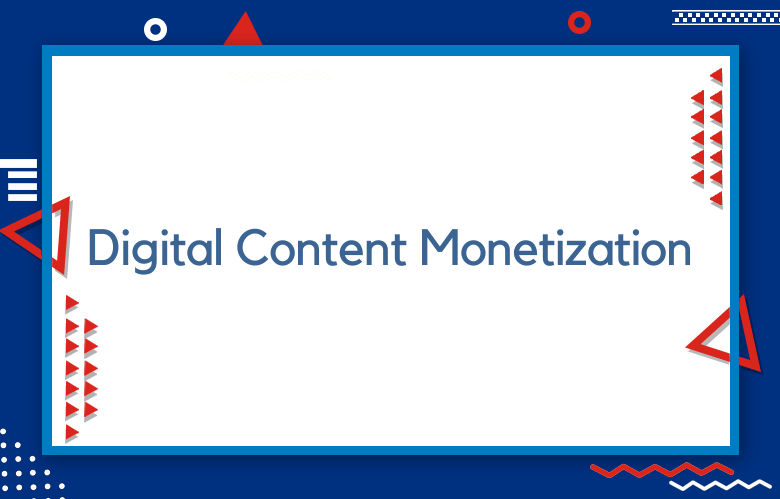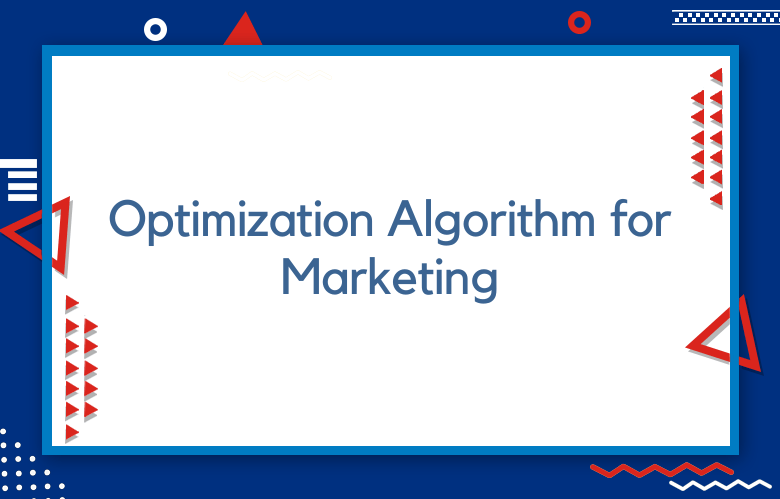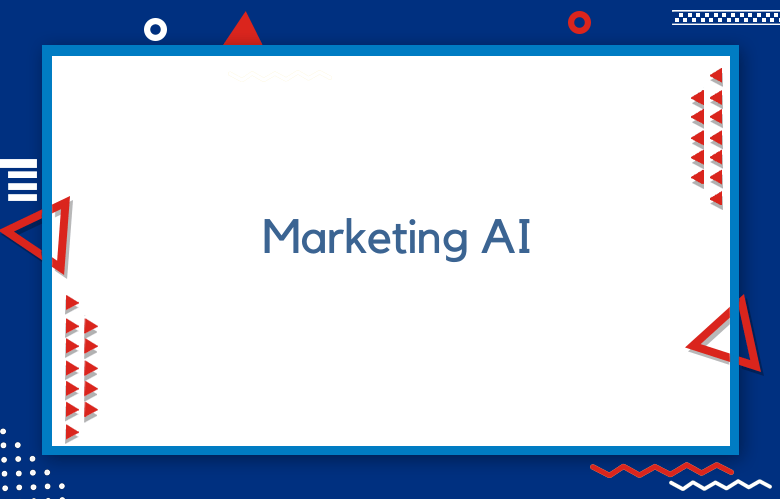Maximizing Revenue with AI in Digital Content Monetization

Digital content is growing unprecedentedly, so content creators and publishers constantly seek ways to maximize revenue. Traditional monetization methods, such as advertising or subscription models, are ineffective.
Enter AI, which has quickly become a game-changer in digital content monetization. We’ll delve into how AI is helping content creators increase revenue and improve engagement with their audiences.
The digital content world is growing fast. Experts predict the global digital content industry will surpass $400 billion by 2023. This presents an enormous opportunity for content creators and publishers. However, with the explosion of content comes fierce competition, making it challenging to monetize digital content effectively.
This is where artificial intelligence (AI) comes in. AI technology can help content creators and publishers maximize revenue by providing personalized recommendations and targeted advertising. We will explore how you can use AI to optimize your digital content monetization strategy.
AI’s Impact on Digital Content Monetization
As technological innovation continues to accelerate at an unprecedented pace, digital content monetization is undergoing a significant shift with the emergence of Artificial Intelligence (AI). AI’s impact on digital content monetization has been practical, and its effects are felt across various industries and applications.
One of the most significant ways that AI has affected digital content monetization is by improving audience segmentation. Previously, content creators and marketers relied on broad demographic information to create marketing plans. However, AI allows for much granular and accurate information to be gathered.
AI algorithms and tools can collect real-time data on audience browsing behaviors, preferences, and demographics.
This data-driven approach has enabled content creators to tailor their marketing campaigns to a specific audience segment, leading to higher engagement and conversion rates.
Transforming Content Monetization with AI
The emergence of artificial intelligence has opened up vast opportunities for the content industry in terms of monetization. Content monetization refers to earning revenue through content creation and distribution.
With the advancement of AI technology, content producers can now leverage machine learning algorithms and natural language processing to create more engaging and personalized content for their audience.
One primary way AI transforms content monetization is through predictive analytics. By analyzing user data, AI algorithms can predict the type of content that would be most appealing to a particular audience, which content formats (such as video, audio, or written content) would yield the highest engagement, and which distribution channels (i.e., social media, websites, or mobile apps) would be most effective.
This helps content producers to tailor their content strategy accordingly and optimize the monetization potential of their content.
Leveraging AI for Digital Content Monetization
Digital content monetization has been a growing concern for businesses and content creators alike, with the popularity of online streaming services and the ever-increasing demand for new and engaging content.
To meet these demands, businesses have turned to artificial intelligence (AI) to maximize revenue potential through targeted content offerings and personalized recommendations.
One fundamental way businesses leverage AI for digital content monetization is through sophisticated algorithms to analyze user behavior, preferences, and engagement patterns.
By collecting and analyzing this data, businesses can gain insights into what types of content users are most likely to consume and offer targeted recommendations that are more likely to convert to revenue.
Optimizing Content Monetization with AI
With the rapid growth of digital content consumption, monetization has become crucial for publishers and content creators. AI technology has been proven to be an effective tool in optimizing content monetization, helping publishers to generate more revenue from their content.
One of the key benefits of using AI in content monetization is its ability to provide personalized recommendations to users.
By analyzing user data, AI can deliver targeted content recommendations to users that match their interests and preferences. This enhances the user experience and leads to increased engagement, which translates into more revenue for publishers.
The Role of AI in Digital Content Monetization
As the digital economy continues to evolve, there is a growing need for effective digital content monetization strategies.
Artificial Intelligence (AI) ‘s rise is changing how businesses approach content monetization. Today, AI plays a significant role in digital content monetization, and companies are leveraging it to drive revenue growth and enhance profitability.
One significant benefit of AI in digital content monetization is its ability to analyze user behavior and engagement data. Through advanced analytical algorithms, AI can identify patterns in user behavior, providing businesses with valuable insights into the content that resonates with their target audience.
This, in turn, enables businesses to optimize their content strategies and monetize their digital content effectively.
Transforming Digital Content Monetization with AI
Monetization of digital content has become a significant concern for content creators and publishers. With the rise of digital platforms, content has become widely accessible to the masses, leading to increased competition and the need for differentiated revenue streams.
One of the most promising solutions to this challenge is using artificial intelligence (AI) in digital content monetization.
AI technologies have enabled publishers to understand their audience’s interests and behavior better, thus allowing them to create highly personalized content that appeals to their target audience.
This personalized content is more likely to attract more page views and engagement, leading to increased revenues through various monetization models such as native advertising, sponsored content, and paywalls.
The Impact of AI on Monetizing Digital Content
Artificial intelligence (AI) is revolutionizing many aspects of our lives, including how we create, distribute, and consume digital content. Digital content monetization has historically challenged content creators, but AI-powered technologies are changing the game.
This article will explore AI’s impact on monetizing digital content and its various applications.
One of the most significant applications of AI in digital content monetization is targeted advertising. AI algorithms can analyze vast amounts of data on user behavior and preferences, enabling content creators to deliver highly personalized advertising to their target audience.
This approach increases the chances of ad engagement, helps content creators better understand their audience, and allows them to tailor their content to them, leading to increased engagement and revenue.
Leveraging AI for Effective Digital Content Monetization
As the digital landscape continues to evolve, content creators are constantly seeking new ways to monetize their content. One emerging solution is using Artificial Intelligence (AI) to optimize digital content monetization. AI has revolutionized businesses’ operations and has now found its way into digital content creation.
The use of AI in content monetization has shown incredible success, with publishers reporting significant revenue increases.
AI-powered tools can analyze user data and predict what type of content users will be more likely to engage with. This enables publishers to strategically place advertisements that are more relevant to users strategically, increasing click-through rates and revenue.
AI Revolutionizing Digital Content Monetization Strategies
Artificial intelligence (AI) has become the game changer in the ever-evolving landscape of digital content monetization strategies. Leveraging the power of AI allows businesses to optimize their digital content, improve user engagement, and ultimately increase revenue.
In the past, content monetization meant displaying advertisements to generate revenue. However, this approach often causes users to abandon a website due to the intrusive nature of ads. AI-driven content monetization strategies have revolutionized this process by providing personalized experiences to users who are less likely to turn them away.
The Role of AI in Optimizing Digital Content Monetization
In recent years, the rise of digital content consumption has been substantial, with more and more users preferring digital streaming services over traditional television and radio formats.
As a result, content creators and publishers have been paying extra attention to monetizing their digital content effectively. One of the ways this is being achieved is through the use of AI algorithms.
AI algorithms analyze user behavior on digital platforms and provide insights into consumer preferences. This enables publishers and creators to offer more targeted content and advertising to their audience, resulting in more effective monetization of their content.
AI-powered content optimization tools can also increase content discoverability and engagement among users, thereby increasing its monetization potential.
Personalized Advertising: Maximizing Revenue with AI
Personalized advertising has become an increasingly popular marketing tactic in recent years. By leveraging the power of artificial intelligence (AI), businesses can now deliver highly targeted ads to their desired audience, significantly improving their chances of converting prospects into customers.
One significant advantage of using AI in personalized advertising is its ability to collect and analyze vast amounts of data about individual consumers. By tracking their browsing behavior, online interactions, and purchase history, AI algorithms can create detailed profiles of each individual’s preferences, interests, and habits.
Improved Content Recommendations through AI and Machine Learning
In today’s digital era, where the amount of data available is growing unprecedentedly, content curation and personalization have become more critical than ever. That is where the use of Artificial Intelligence (AI) and Machine Learning (ML) comes in, revolutionizing how content is recommended to individuals.
Through AI and ML algorithms, content providers can more accurately predict what content a user might like to consume.
Such algorithms consider relevant data such as age, gender, location, and browsing history and use advanced techniques such as Natural Language Processing (NLP) and Collaborative Filtering to improve recommendations.
NLP algorithms analyze content and understand its meaning, while Collaborative Filtering analyzes users’ behavior and patterns to make the best recommendations.
Streamlining Content Creation with AI Technology
In today’s digital era, content creation has become essential for businesses to attract and engage with their target audience.
With the rise of artificial intelligence technology, content creation has always been challenging. AI technology can streamline content creation by generating high-quality content faster and more efficiently than ever.
One way AI technology can aid in content creation is through natural language processing (NLP). NLP enables AI tools to analyze the context and intent of the content, allowing them to craft unique and relevant content quickly.
Moreover, AI tools can automate keyword research, topic selection, and content formatting tasks to deliver a more comprehensive and structured output.
Predictive Analytics: Optimizing Content Distribution and Monetization
Predictive analytics is a powerful tool for optimizing content distribution and monetization.
It enables businesses to analyze and understand the behavior of their target audience and make data-driven decisions that can lead to better engagement, increased revenue, and stronger customer relationships.
One of the key benefits of predictive analytics is that it allows companies to anticipate the needs and preferences of their audience.
By analyzing data from various sources, including social media, website traffic, and customer interactions, businesses can gain valuable insights into what their customers are searching for and what content resonates with them. These insights can be used to create targeted content that meets their audience’s demands.
Ensuring Ad Placement and Pricing Success with AI Optimization
In today’s highly competitive digital advertising landscape, businesses must ensure optimal ad placement and pricing to reach their target audience and drive maximum ROI effectively.
With the advent of Artificial Intelligence (AI), businesses can now use cutting-edge AI-powered optimization techniques to achieve advertising success.
AI optimization uses machine learning algorithms to analyze vast data and provide insightful ad placement and pricing recommendations. This eliminates the guesswork from the advertising process and ensures businesses make data-driven decisions to achieve maximum success.
AI-Powered Monetization Strategies
AI-powered monetization Strategies are becoming more common among companies seeking to maximize profits. These strategies utilize artificial intelligence algorithms to analyze data and develop highly targeted monetization techniques.
By leveraging AI technology, companies can gain valuable insights into consumer behavior, preferences, and purchasing history. These insights can then be applied to create customized marketing campaigns and ad placements, increasing engagement and higher conversion rates.
One notable AI-powered monetization strategy is personalized pricing. This technique uses machine learning models to predict customers’ willingness to pay for a product or service based on their shopping behavior. By presenting customized prices, companies can increase their revenue and build customer loyalty by providing tailored pricing options that align with the individual’s budget and preferences.
Data Privacy in AI Monetization
In the era of advanced technologies and digitalization, data has become the new oil, and Artificial Intelligence (AI) is the engine that drives the digital economy. The widespread use of AI has brought considerable benefits to various industries and organizations, but at the same time, it has raised critical concerns about data privacy and ethics.
As more and more data is collected and analyzed, the potential risks of data breaches and mishandling have increased. AI systems often require access to vast amounts of data to perform their tasks accurately and efficiently. This creates a significant privacy risk for individuals unaware of how their data is used and stored.
Building User Trust in AI Content
As we move further into the age of artificial intelligence (AI), concerns about its trustworthiness continue to grow. Some of these concerns can be attributed to the fear of job displacement.
Others stem from concerns about how machine learning algorithms are programmed and the potential for biases in their decision-making processes. Regardless of the reason, building user trust in AI content has become a critical task for those in the tech industry.
One key factor in building user trust is transparency. Companies that are open about their AI systems and how they make decisions are more likely to earn the trust of their users.
This includes providing detailed information about the data being used to train the system, how the algorithms are making decisions, and what safeguards are in place to prevent errors or biases.
AI-Generated Content: Pros and Cons
AI-generated content has gained significant attention in recent years, as it has the potential to revolutionize the way content is created and consumed. There are several advantages and disadvantages associated with using AI-generated content, and it is essential to understand both sides of the argument.
One of the significant pros of using AI-generated content is its speed and efficiency. AI-powered tools can produce a vast range within minutes, saving time and workforce.
This can benefit businesses that regularly create extensive content, such as news outlets, social media marketing agencies, and e-commerce platforms.
AI-generated content monetization
AI-generated content monetization is an emerging digital phenomenon revolutionizing how we create, distribute, and consume content.
With the rapid advancements in AI technology and the increasing need for personalized, engaging, and high-quality content, businesses and individuals are turning to AI solutions to generate, curate, and optimize content for their audiences.
One of the most significant benefits of AI-generated content is its ability to streamline the content creation process and reduce costs.
By automating time-consuming and repetitive tasks such as research, data analysis, and content optimization, AI algorithms can generate high volumes of content in a fraction of the time it would take a human to do so.
This saves businesses time and resources and enables them to produce more content, experiment with different formats and topics, and reach wider audiences.
AI in content creation for monetization
The growing popularity of digital media content over the past few years has given rise to a thriving content creation industry.
Currently, content creation is considered an effective way of generating revenue in the digital space. With technological advancements and the emergence of Artificial Intelligence (AI), content creation has become more efficient, effective, and profitable.
AI offers content creators several advantages, including speed, accuracy, and creativity, essential for creating high-quality content. AI algorithms can analyze consumer behavior, preferences, and needs data and generate personalized content that resonates with specific audiences.
By incorporating AI into content creation, marketers can maximize monetization opportunities by creating engaging, relevant content that attracts and retains a loyal audience.
AI tools monetization strategies
Artificial Intelligence (AI) has revolutionized business operations in recent years. AI tools assist with various tasks, from data analysis and processing to customer service and marketing. While these tools have become increasingly sophisticated, the question remains—how can businesses effectively monetize them?
One strategy for monetizing AI tools is through a subscription-based model. This involves charging customers a monthly or yearly fee for access to the AI tool.
This model is particularly effective for businesses that provide ongoing services, such as software development. Customers are more likely to maintain their subscriptions if they perceive that the tool provides valuable insights and assistance that cannot be obtained elsewhere.
Data monetization with AI
Data monetization with AI is a rapidly growing field transforming how companies generate revenue from their data assets.
Businesses can extract valuable insights and predictions from their data in real-time using advanced AI algorithms, creating new revenue generation and cost optimization opportunities.
This is especially relevant for industries that generate large amounts of data, such as finance, healthcare, energy, and logistics.
One of the main advantages of data monetization with AI is that businesses can use real-time data to make informed decisions and gain a competitive edge. For instance, by analyzing trends in customer behavior data, companies can create targeted marketing campaigns that increase customer engagement and boost sales.
In addition, AI-powered predictive models can identify potential risks and opportunities, enabling businesses to optimize their operations and reduce costs.
Personalized content recommendations with AI
Personalized content recommendations have become a buzzword among technology giants like Netflix, Amazon, and Spotify. Artificial Intelligence (AI) in content recommendation systems has revolutionized how we consume content.
From suggesting a movie to watch, a song to listen to, or a product to purchase, personalized recommendations make our lives easy.
The AI-powered recommendation system analyzes the user’s past behavior, preferences, and interaction with the platform. It tracks the user’s clicks, likes, ratings, and purchase history to understand their likes, dislikes, and preferences.
This data is then fed into a machine learning algorithm that uses predictive analytics to generate a list of recommended content more likely to be viewed or purchased.
Conclusion:
AI transforms digital content monetization by providing publishers with data-driven insights to improve audience engagement and revenue decisions. The above sections are only a glimpse of how AI monetizes digital content.
Nonetheless, AI’s potential for unlocking revenue is vast. With the increasing demand for personalized and engaging content, the need for AI in digital content monetization is sure to grow. As such, publishers and content creators must embrace the technology to stay ahead of the competition.
In conclusion, AI technology can transform digital content monetization for publishers and creators. By providing personalized recommendations, targeted advertising, predictive analytics, content optimization, and monetization analysis,
AI can help publishers and creators maximize revenue and improve the user experience. While AI technology is not a magic bullet, it can enable digital content creators and publishers to make data-driven decisions that increase revenues and profits.
Call: +91 9848321284
Email: [email protected]



